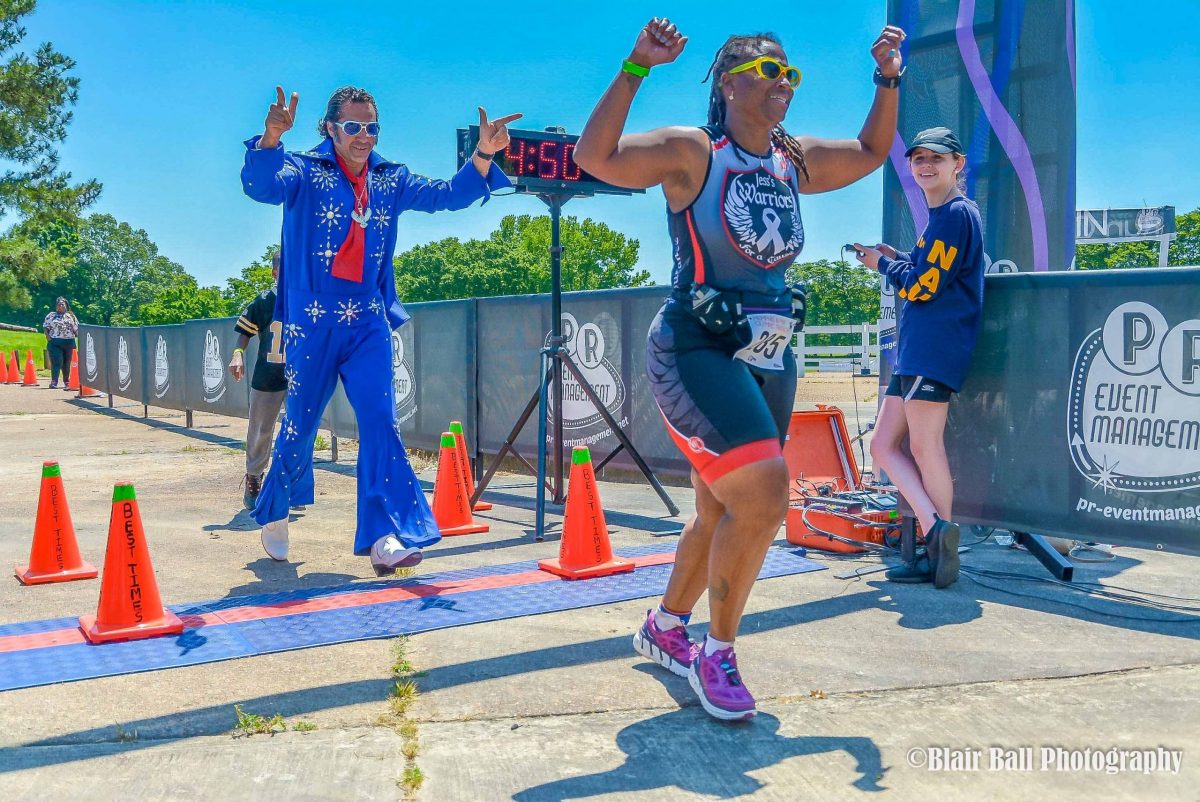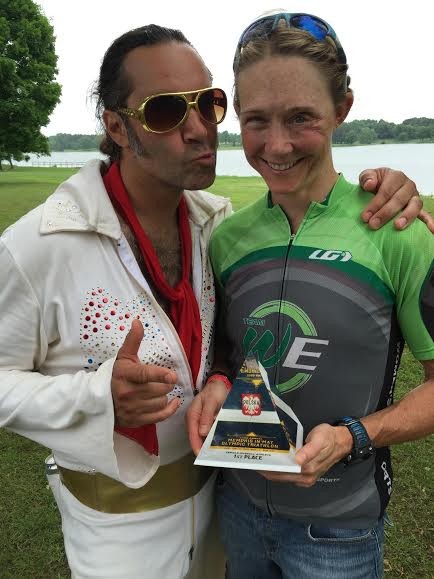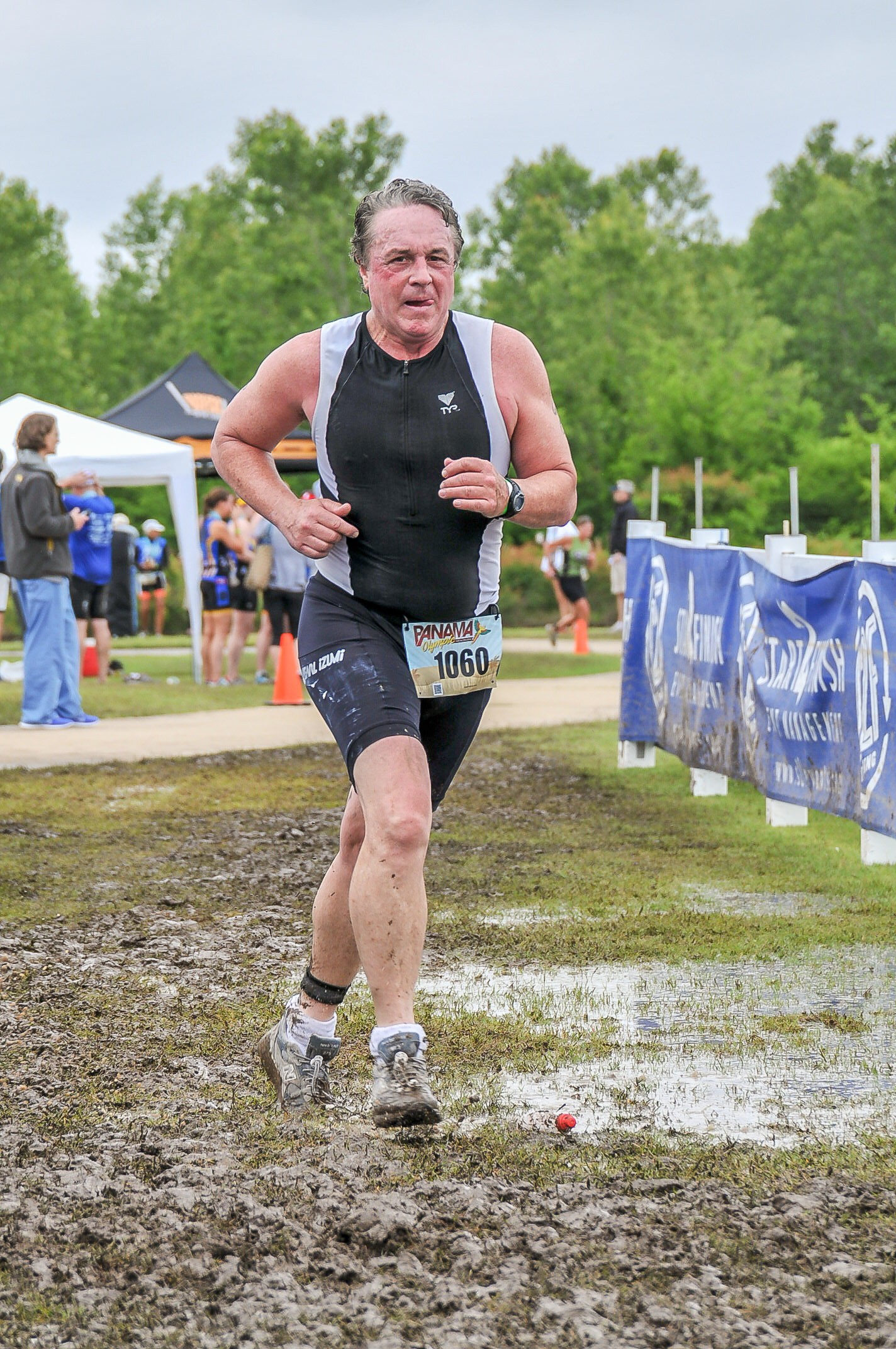Memphis-based PR Event Management is getting out of the triathlon business, as we reported earlier this month, in hopes of finding a buyer for the area’s biggest events — the Memphis In May Triathlon (MIM Tri) and Annie Oakley Buffalo Bill Triathlon (AOBB Tri).
The MIM Tri event turned 40 last year. There for most of that event’s history has been Pam Routh, triathlete and co-founder of PR Events. She and company co-founder Wyndell Robertson also serve as race directors for the events.
In Olympic-length triathlons, participants swim for .93 of a mile, bike for 24.8 miles, and run for 6.2 miles. The sport was born in America and Memphis served as an important proving grounds for it early on, Routh says.
The race was once part of the Memphis In May International Festival (MIM), part of a sports weekend. The triathlon later broke out for its own weekend. The rights to the event (and its bike racks) were later sold to three Memphis triathletes for $5,000, Routh said, and are not part of MIM.
Those athletes later tired of helming the event and offered it up in a group meeting of Memphis triathletes. Routh stepped forward, thinking the next morning, “Oh, how many beers did I drink?”
But in her time running the MIM Tri, it has grown from 600 participants to 1,800, one that has attracted top pros in the sport because “we ran a tight race.” The event here also touted the biggest purse in the sport for years.
The MIM Tri was one of the races that helped get the sport into the Olympics, Routh said, and helped train its race officials when it debuted in 2000 in Sydney Summer Games. Memphis was also a practice race for national officials to test drug-testing protocols.
We recently caught up with Routh about the sale.
This interview has been condensed for space and clarity. — Toby Sells
Memphis Flyer: What was the special sauce that made The MIM Tri so successful here early on?
Pam Routh: Because every person involved was a triathlete and we knew our business. We also wanted to put on a race that we wanted to go to.
[Inviting those from out of town] was basically like inviting people to my neighborhood to enjoy my race course, and my festivities, and my fellowship. It’s a very warm community.
What about now?
Memphis is a great community. We have Elvis that runs in with the last finisher. We usually have barbecue. We have beer. We throw a throw down and we always have.
It’s also always a very, very well-run race. All my triathletes and staff are just the best of the best.
Any fun stories?
[Years ago], I’m out at the race site two weeks out at Edmund Orgill Park. This girl is in the parking lot. I show her my [race] brochure. She’s in cutoff jeans and smoking a cigarette. She says, “I might do this.” I was like oh yeah, girl? Uh huh. But I say, “we’d love to have you.”
[Later], I was cleaning up the hospitality tent. The race is over and everyone is gone. This woman walks up and says, “well, I just finished.” I said, “what did you just finish?” She said, “I just finished the race.”
Because I have such a good team, they were following her. She borrowed a bike. She rode in the MIM Tri without ever having trained in a pair of cutoffs and in a pair of deck shoes.
[The Commercial Appeal] did an article on her. People gave her a pair of running shoes. She got a bicycle. She started training. I almost started crying.
Now you’re ready to pass the baton?
I’d love to keep this thing strong. I’d like to find somebody to adopt it. Is it a business sale? Yes.
And I know that emotions get in the way when something’s 40 years old. But not many events can say that you really have something and we have a strong brand. We are blowing and going and I want to get people back into being healthy.
I’d like to see the right person buy this. So, “pass the baton” is really that. I really want to pass it on and adopt this out. I don’t want to shut it down.



 Photo courtesy Blair Ball Photography
Photo courtesy Blair Ball Photography